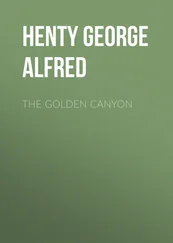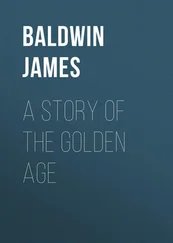James George Frazer - The Golden Bough
Здесь есть возможность читать онлайн «James George Frazer - The Golden Bough» — ознакомительный отрывок электронной книги совершенно бесплатно, а после прочтения отрывка купить полную версию. В некоторых случаях можно слушать аудио, скачать через торрент в формате fb2 и присутствует краткое содержание. Жанр: unrecognised, на английском языке. Описание произведения, (предисловие) а так же отзывы посетителей доступны на портале библиотеки ЛибКат.
- Название:The Golden Bough
- Автор:
- Жанр:
- Год:неизвестен
- ISBN:нет данных
- Рейтинг книги:3 / 5. Голосов: 1
-
Избранное:Добавить в избранное
- Отзывы:
-
Ваша оценка:
- 60
- 1
- 2
- 3
- 4
- 5
The Golden Bough: краткое содержание, описание и аннотация
Предлагаем к чтению аннотацию, описание, краткое содержание или предисловие (зависит от того, что написал сам автор книги «The Golden Bough»). Если вы не нашли необходимую информацию о книге — напишите в комментариях, мы постараемся отыскать её.
The Golden Bough — читать онлайн ознакомительный отрывок
Ниже представлен текст книги, разбитый по страницам. Система сохранения места последней прочитанной страницы, позволяет с удобством читать онлайн бесплатно книгу «The Golden Bough», без необходимости каждый раз заново искать на чём Вы остановились. Поставьте закладку, и сможете в любой момент перейти на страницу, на которой закончили чтение.
Интервал:
Закладка:
The general result is that at this stage of social evolution the supreme power tends to fall into the hands of men of the keenest intelligence and the most unscrupulous character. If we could balance the harm they do by their knavery against the benefits they confer by their superior sagacity, it might well be found that the good greatly outweighed the evil. For more mischief has probably been wrought in the world by honest fools in high places than by intelligent rascals. Once your shrewd rogue has attained the height of his ambition, and has no longer any selfish end to further, he may, and often does, turn his talents, his experience, his resources, to the service of the public. Many men who have been least scrupulous in the acquisition of power have been most beneficent in the use of it, whether the power they aimed at and won was that of wealth, political authority, or what not. In the field of politics the wily intriguer, the ruthless victor, may end by being a wise and magnanimous ruler, blessed in his lifetime, lamented at his death, admired and applauded by posterity. Such men, to take two of the most conspicuous instances, were Julius Caesar and Augustus. But once a fool always a fool, and the greater the power in his hands the more disastrous is likely to be the use he makes of it. The heaviest calamity in English history, the breach with America, might never have occurred if George the Third had not been an honest dullard.
Thus, so far as the public profession of magic affected the constitution of savage society, it tended to place the control of affairs in the hands of the ablest man: it shifted the balance of power from the many to the one: it substituted a monarchy for a democracy, or rather for an oligarchy of old men; for in general the savage community is ruled, not by the whole body of adult males, but by a council of elders. The change, by whatever causes produced, and whatever the character of the early rulers, was on the whole very beneficial. For the rise of monarchy appears to be an essential condition of the emergence of mankind from savagery. No human being is so hide-bound by custom and tradition as your democratic savage; in no state of society consequently is progress so slow and difficult. The old notion that the savage is the freest of mankind is the reverse of the truth. He is a slave, not indeed to a visible master, but to the past, to the spirits of his dead forefathers, who haunt his steps from birth to death, and rule him with a rod of iron. What they did is the pattern of right, the unwritten law to which he yields a blind unquestioning obedience. The least possible scope is thus afforded to superior talent to change old customs for the better. The ablest man is dragged down by the weakest and dullest, who necessarily sets the standard, since he cannot rise, while the other can fall. The surface of such a society presents a uniform dead level, so far as it is humanly possible to reduce the natural inequalities, the immeasurable real differences of inborn capacity and temper, to a false superficial appearance of equality. From this low and stagnant condition of affairs, which demagogues and dreamers in later times have lauded as the ideal state, the Golden Age, of humanity, everything that helps to raise society by opening a career to talent and proportioning the degrees of authority to men’s natural abilities, deserves to be welcomed by all who have the real good of their fellows at heart. Once these elevating influences have begun to operate—and they cannot be for ever suppressed—the progress of civilisation becomes comparatively rapid. The rise of one man to supreme power enables him to carry through changes in a single lifetime which previously many generations might not have sufficed to effect; and if, as will often happen, he is a man of intellect and energy above the common, he will readily avail himself of the opportunity. Even the whims and caprices of a tyrant may be of service in breaking the chain of custom which lies so heavy on the savage. And as soon as the tribe ceases to be swayed by the timid and divided counsels of the elders, and yields to the direction of a single strong and resolute mind, it becomes formidable to its neighbours and enters on a career of aggrandisement, which at an early stage of history is often highly favourable to social, industrial, and intellectual progress. For extending its sway, partly by force of arms, partly by the voluntary submission of weaker tribes, the community soon acquires wealth and slaves, both of which, by relieving some classes from the perpetual struggle for a bare subsistence, afford them an opportunity of devoting themselves to that disinterested pursuit of knowledge which is the noblest and most powerful instrument to ameliorate the lot of man.
Intellectual progress, which reveals itself in the growth of art and science and the spread of more liberal views, cannot be dissociated from industrial or economic progress, and that in its turn receives an immense impulse from conquest and empire. It is no mere accident that the most vehement outbursts of activity of the human mind have followed close on the heels of victory, and that the great conquering races of the world have commonly done most to advance and spread civilisation, thus healing in peace the wounds they inflicted in war. The Babylonians, the Greeks, the Romans, the Arabs are our witnesses in the past: we may yet live to see a similar outburst in Japan. Nor, to remount the stream of history to its sources, is it an accident that all the first great strides towards civilisation have been made under despotic and theocratic governments, like those of Egypt, Babylon, and Peru, where the supreme ruler claimed and received the servile allegiance of his subjects in the double character of a king and a god. It is hardly too much to say that at this early epoch despotism is the best friend of humanity and, paradoxical as it may sound, of liberty. For after all there is more liberty in the best sense—liberty to think our own thoughts and to fashion our own destinies—under the most absolute despotism, the most grinding tyranny, than under the apparent freedom of savage life, where the individual’s lot is cast from the cradle to the grave in the iron mould of hereditary custom.
So far, therefore, as the public profession of magic has been one of the roads by which the ablest men have passed to supreme power, it has contributed to emancipate mankind from the thraldom of tradition and to elevate them into a larger, freer life, with a broader outlook on the world. This is no small service rendered to humanity. And when we remember further that in another direction magic has paved the way for science, we are forced to admit that if the black art has done much evil, it has also been the source of much good; that if it is the child of error, it has yet been the mother of freedom and truth.
IV. Magic and Religion
Table of Contents
The examples collected in the last chapter may suffice to illustrate the general principles of sympathetic magic in its two branches, to which we have given the names of Homoeopathic and Contagious respectively. In some cases of magic which have come before us we have seen that the operation of spirits is assumed, and that an attempt is made to win their favour by prayer and sacrifice. But these cases are on the whole exceptional; they exhibit magic tinged and alloyed with religion. Wherever sympathetic magic occurs in its pure unadulterated form, it assumes that in nature one event follows another necessarily and invariably without the intervention of any spiritual or personal agency. Thus its fundamental conception is identical with that of modern science; underlying the whole system is a faith, implicit but real and firm, in the order and uniformity of nature. The magician does not doubt that the same causes will always produce the same effects, that the performance of the proper ceremony, accompanied by the appropriate spell, will inevitably be attended by the desired result, unless, indeed, his incantations should chance to be thwarted and foiled by the more potent charms of another sorcerer. He supplicates no higher power: he sues the favour of no fickle and wayward being: he abases himself before no awful deity. Yet his power, great as he believes it to be, is by no means arbitrary and unlimited. He can wield it only so long as he strictly conforms to the rules of his art, or to what may be called the laws of nature as conceived by him. To neglect these rules, to break these laws in the smallest particular, is to incur failure, and may even expose the unskilful practitioner himself to the utmost peril. If he claims a sovereignty over nature, it is a constitutional sovereignty rigorously limited in its scope and exercised in exact conformity with ancient usage. Thus the analogy between the magical and the scientific conceptions of the world is close. In both of them the succession of events is assumed to be perfectly regular and certain, being determined by immutable laws, the operation of which can be foreseen and calculated precisely; the elements of caprice, of chance, and of accident are banished from the course of nature. Both of them open up a seemingly boundless vista of possibilities to him who knows the causes of things and can touch the secret springs that set in motion the vast and intricate mechanism of the world. Hence the strong attraction which magic and science alike have exercised on the human mind; hence the powerful stimulus that both have given to the pursuit of knowledge. They lure the weary enquirer, the footsore seeker, on through the wilderness of disappointment in the present by their endless promises of the future: they take him up to the top of an exceeding high mountain and show him, beyond the dark clouds and rolling mists at his feet, a vision of the celestial city, far off, it may be, but radiant with unearthly splendour, bathed in the light of dreams.
Читать дальшеИнтервал:
Закладка:
Похожие книги на «The Golden Bough»
Представляем Вашему вниманию похожие книги на «The Golden Bough» списком для выбора. Мы отобрали схожую по названию и смыслу литературу в надежде предоставить читателям больше вариантов отыскать новые, интересные, ещё непрочитанные произведения.
Обсуждение, отзывы о книге «The Golden Bough» и просто собственные мнения читателей. Оставьте ваши комментарии, напишите, что Вы думаете о произведении, его смысле или главных героях. Укажите что конкретно понравилось, а что нет, и почему Вы так считаете.












